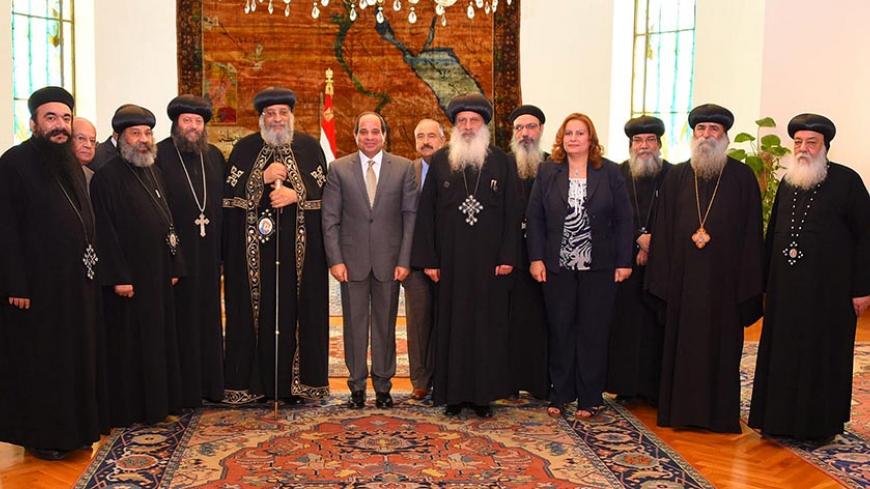CAIRO — Egypt’s Coptic Christians have become used to visits by President Abdel Fattah al-Sisi. On Jan. 6, for the third year in a row, Sisi celebrated Coptic Christmas at the Abbasiya Cathedral in Cairo, extending Christmas wishes to the country’s Copts and Tawadros II, the pope of Alexandria and patriarch of the See of St. Mark.
This year, the celebration was different. The cathedral where Sisi addressed the congregation and delivered Christmas wishes stands just meters from St. Peter and St. Paul Coptic Orthodox Church, where an explosion during a service on Dec. 11 claimed the lives of 27 people and wounded 48, mostly women and children.



